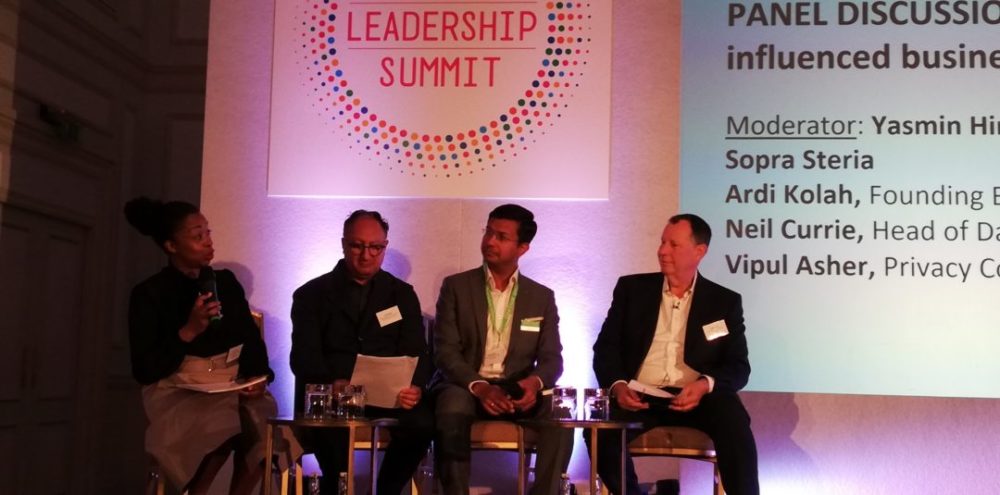Reflecting on the past 12 months in a panel discussion this morning, Neil Currie, head of data management at Crowe, explained how GDPR had created a new baseline for data protection regulation and how it’s changing the way companies and consumers think about personal data.
“I think it’s gone way beyond Europe too,” he added. “It’s created a benchmark for privacy on a global basis with countries like the US, Singapore and Brazil now developing their own legislation. I think this will continue, as we see further legislation enacted globally, the data privacy landscape will continue to transform.”
In other words, GDPR has opened a can of those wriggly things. But has its effect been positive? The panel seemed to think so.
Vipul Asher, privacy consulting manager, One Trust, admitted to the audience how stressful things were this time last year, but he believes that there’s now a heightened awareness of privacy and data protection from a board perspective across enterprises.
He said: “We’re in a better place than we were before. There’s been a lot of education. CIOs and CTOs have been doing the work they have to.”
Will data ethics and regulation drive innovation in AI?
Did it drive innovation?
While GDPR did indeed demand a lot of work and investment, speaking with Information Age, Currie argued that in many businesses it kick-started a long-overdue and neglected focus on data protection risks and practices, which in turn opened them to new opportunities.
“GDPR created a much greater awareness that the data we had held real value and that we were at risk of losing it,” he said. “It made data a board-level discussion, all of a sudden businesses leaders realised that all the data they’d been collecting could vanish. They realised that they might not be able to go back and market to certain contacts.”
According to Currie, another reason GDPR drove innovations is that compliance required educating people about data, which in turn got enterprises talking about data-cultures.
“Suddenly businesses start to adopt privacy by design and people were being told exactly what is going on.”
GDPR anniversary: has the regulation backfired? What next?
Impact of Brexit
Today is also important because we’re having our European elections. This means that the composition of the European Parliament will change. This could change the fabric and direction of regulations around data.
“There’s a lot of discussion around data transfers and the impact of the Brexit environment,” said Currie. “I think the broader impact from our perspective around Brexit is how information will be swapped amongst the law enforcement agencies and amongst all of those background processes that underpin our infrastructure.
“And I think one of the critical issues is we don’t know any answers to that. And there are all sorts of things being cobbled together in the background, we hope we’re going to allow things to continue to run as normal. It’s gonna be some time before it unfolds, and I guess all we can do is prepare as best we can, knowing that chaos will ensue.”
The GDPR and Brexit










